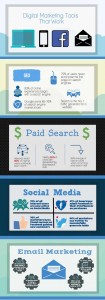
Video marketing has been around for a long time. Since the first advertisement aired on television, we have been bombarded with commercials. Most of them annoy us, but we all have our favorite few that really resonated. Heck, 78% of Americans look forward to Super Bowl commercials more than the game. It’s clear that videos impact us in a unique way.
Videos are a great medium for communicating and engaging with an audience – and can be enhanced with interactive video. Using interactive video, you can have an actual conversation with your audience by posing questions they can answer in real time. This heightens engagement by truly getting the audience involved, and provides you with valuable and relevant data.
But how do you go about designing and executing on a video marketing strategy? We’re here to offer the 5 W’s of creating amazing marketing videos: who, what, when, where, and why.
Who
Who is going to create and produce your video? Clearing this up off the bat will guide you as you make future decisions about your product. Depending on whether you’re going with in-sourcing or out-sourcing, either for production or talent, you’ll make different choices about the type of video you create.
In-House or Outsourcing
Over half of marketing executives report that they will spend budget in the next year on video marketing.
If your company has the capital to spend, it might be worth looking into a third party to create and produce your video. When you’re searching out the perfect match for your company, it is important to find a partner whose work you admire. If they produce videos you wish you could produce, then they will most likely create a video you like. But it is also important to get recommendations from other people or companies who have used them in the past to find out what the experience was like. Even if they create incredible videos, if they are difficult to work with or they can’t follow your vision for the video they might not be worth all that dough.
Some other things to consider are:
- Time constraints
- Budget
- Availability
However, maybe your company doesn’t have the money to spend on a production partner to create your video. Don’t worry – you’ll still be able to produce a killer video! Recruit the tech-savvy person in your company and give them the ideas you want to portray. You could create a simple screencast with voiceover, a talking-head in front of a backdrop, or an animated project using a tool like GoAnimate.
Talent
If you have a company cheerleader – someone who loves coming to work every day and would do so even if they didn’t have to – have them be the star. Their passion and excitement will be captured perfectly through the video and will be contagious to those who watch it.
Production
A video is easy enough to shoot, whether it’s shot on a phone, a camera or a laptop. The use of a tripod can help keep the frame steady, and the video can be easily edited using free tools like iMovie.
Keep in mind the time investment for production – especially if you’re producing in-house, these things can take much longer than you think.
More tips for video production from Wistia.
What
Now that you know who will be making the movie and who will be starring in it, what are you going to make your video about?
It’s really important to keep your video focused so your viewer doesn’t get lost, so try sticking to a specific topic. The team over at Wistia found that shorter videos are better for getting people to watch the whole thing – so keep your videos as short as you can!
The ideas for what to cover can come from right beside you – your sales team! Ask them what common questions they get about your brand and what you offer, and answer some of those questions in your video.
You can also ask them about some concerns people have before purchasing your product/service. If you acknowledge those concerns and talk them through, your audience will be more receptive to your ideas and your point of view.
Other quick and easy video ideas that are relatively easy to make are:
- Tutorials
- Interviews (customers, employees, industry thought-leaders)
- Reviews
- Previews (what’s coming up for your company or product?)
When
When will you film, produce, edit, and publish your video? Determine your overall campaign timeline, identify the drop date and work backward from there to schedule out production.
One way to anchor your campaign for your audience is to connect it to a relevant holiday. Use the holiday to provide a theme and narrative for your video, as well to get people even more interested and involved. If you think leveraging a holiday would be beneficial to your efforts but don’t know how to market around a holiday, check out our holiday marketing guide.
Things to consider when planning your timeline:
- How much time do you need to shoot, edit, review and finalize your video?
- Is your script/storyboard ready to go or does it need a few more rounds of revision?
- When do you absolutely need your video to go live?
- Are there industry events you should consider launching around?
Where
Once you’ve created your awesome video, where are you going to put it? You have a wide range of options for video hosting providers depending on your needs, or you can stick with YouTube if you have a limited budget.
Posting to YouTube has its advantages – the network has more than 1 billion users, and the number of hours that people spend watching YouTube rises 50% every year. Meaning you could reach a huge number of people by sharing there.
That being said, 300 hours of video are uploaded to YouTube every minute – meaning you can get drowned out with all the other noise. So it’s also a good idea to post and promote your video on your website, landing pages, social media outlets and anywhere else you promote your content. This way, your video is maximizing reach while also targeting your specific audience.
Why
Why will your visitors view and share this video? What’s the value for them? To put it simply, video is inherently engaging and social. Watching something intrigues us and gets us interested – and we want to share that feeling with others.
That being said, a study by Celtra found that just 47% of viewers watch a video to completion – meaning that over half of the views don’t listen to everything you have to say. And even worse, Visible Measures found that 33% of drop-offs happen within the first 30 seconds. So how can you get your audience more engaged and interested in what you have to say so that they don’t ditch your video?
Here comes interactive video to the rescue! You can show them a cool graphic, or pose an interesting question for them to actually answer. That’s right – they physically answer the question in real time. This brings the idea of engagement to a whole new level. Your audience can now take a quiz or participate in a poll that goes along with the video while the video is playing.
Offering personalized results at the end of the video is another powerful motivator to watch the video to completion. And this isn’t theory, either. Interactive videos are found to have a 90% completion rate.
Not only does interactive video increase completion rates, but you as a marketer also collect more valuable data. With non-interactive videos, your video hosting provider will often report on data such as drop-off points and number of views. By layering a quiz or poll on top of a video, you can learn about your buyer’s likes and dislikes; which product line is right for them; or how ready they are to buy. This data can then be used in your marketing automation system to score, nurture and build stronger relationships with your audience.
Conclusion
Regardless of who is making your video or when you are making it, video is an undeniably engaging medium. By making your video interactive, you can amplify that engagement and grab your audience’s attention right from the outset.
Ready to learn more about interactive video? Attend our webinar on July 28th!
(316)
Report Post












